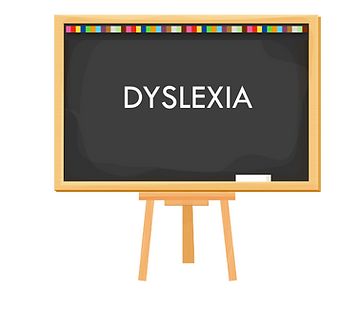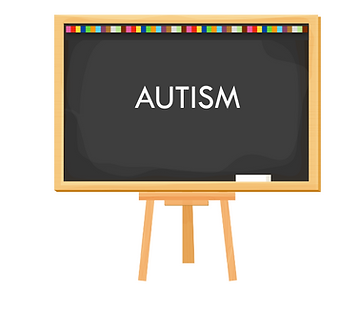How Our Programme Supports Neurodivergent Children
We use proven methods designed for children with diverse needs, including:
Multisensory Learning
We engage multiple senses – sight, sound and touch – to reinforce reading and phonics skills, helping children make stronger connections.
Personalised Phonics Instruction
Every child is unique. We tailor reading plans to suit their pace, learning style, and strengths, using Reading Doctor resources and techniques.
Clear, Step-by-Step Teaching
We break reading down into manageable chunks with direct, explicit instruction and plenty of practice to build confidence.
Focus on Phonological Awareness
Foundational skills like sound discrimination, syllable segmentation and rhyming are taught clearly and methodically.
Comprehension Strategies
Children learn how to visualise, predict, summarise and question text to improve understanding.
Encouragement and Confidence Building
Positive reinforcement and celebrating small wins are key to nurturing a lifelong love of reading.


Download a free SEN brochure
.png)
Dyslexia
Dyslexia is a common learning difference that affects a child’s ability to read, write and spell. It’s often linked to difficulties with phonological processing, meaning children may struggle to break words into sounds, decode unfamiliar words or remember spelling patterns. Dyslexia can also affect reading fluency and working memory, making it harder to retain what has just been read.
How We Support Dyslexia:
At The Reading Doctor, we use a structured phonics-based approach tailored to each child’s needs. Lessons are broken into manageable steps, supported with memory aids, repetition and multisensory activities to strengthen sound-symbol recognition and build long-term literacy skills. We aim to boost confidence and consistency, helping children progress at their own pace.
.png)
ADHD
ADHD can affect a child’s ability to concentrate, manage impulses and sustain attention – all of which are essential skills for learning to read. Children with ADHD may become easily distracted during reading tasks or struggle with working memory, which impacts their ability to follow instructions or retain details from a text.
How We Support ADHD:
We create short, engaging lessons that hold attention, using visuals, physical activities and movement breaks to keep children involved. Our supportive learning environment reduces distractions, and our reading plans are designed to match the child’s focus levels and build stamina gradually. Every session celebrates small wins to keep motivation high.
.png)
Autism Spectrum Conditions (ASC)
Autism can affect how a child communicates, processes language and interacts with others. Children with ASC may find it hard to interpret figurative language, follow narrative structures or understand character emotions, which impacts comprehension. Sensory sensitivities or restricted interests can also limit engagement with certain texts.
How We Support ASC:
We provide clear, predictable structure and use visual supports to aid understanding. Teaching is adapted to suit the child’s interests, using familiar or preferred topics to boost engagement. Strategies include literal explanations, simplified texts and multisensory techniques that cater to different communication styles. Our approach respects and builds on the child’s strengths.
.png)
Executive Function Challenges
Executive functioning involves skills like planning, organising, focusing attention and starting tasks – all essential for effective reading. Children with executive function difficulties may struggle to complete reading assignments, retain sequences of events in stories or manage multi-step instructions.
How We Support Executive Functioning:
Our sessions are designed with step-by-step guidance, clear routines and lots of visual prompts. We break reading tasks into smaller chunks and teach metacognitive strategies, helping children learn how to plan, monitor and evaluate their own reading. Repetition and structure are key, promoting independence and confidence over time.
.png)
Speech, Language & Communication Needs (SLCN)
Children with SLCN may experience delays or differences in their ability to understand or express language. This can affect everything from learning letter sounds to understanding questions about a story. Difficulties with grammar, vocabulary and listening can also hinder reading development.
How We Support SLCN:
We use clear, simplified language, repetition and consistent routines to support language comprehension. Our reading lessons incorporate speech sound awareness and focus on building vocabulary, sentence understanding and listening skills. We work closely with speech therapists and families to ensure continuity and clarity in support.

Working Memory Difficulties
Working memory helps children hold and use information in the moment – such as remembering the start of a sentence while reading the end. Weak working memory can lead to difficulty decoding longer words, retaining story details or following multi-step instructions, often causing frustration.
How We Support Working Memory:
We simplify tasks, use visual supports and repetition, and break information into small, manageable chunks. Strategies like rehearsal, retrieval practice and guided questioning help reinforce learning. By reducing cognitive load and increasing clarity, we help children process and retain reading content more effectively.
.png)
Irlen Syndrome
Also known as Scotopic Sensitivity Syndrome, Irlen Syndrome affects how the brain processes visual information. Children may see words that move, blur or shimmer, which can cause eye strain, headaches or difficulty maintaining focus. This visual stress can significantly slow down reading.
How We Support Irlen Syndrome:
We recommend a visual screening and, where appropriate, the use of coloured overlays or filters to reduce distortion. Our lessons also use large print, reduced visual clutter and flexible lighting to make reading more comfortable. Creating a visually calm environment helps learners with Irlen Syndrome stay engaged and successful.
.png)
Oppositional Defiant Disorder (ODD)
ODD is a behavioural condition where children may show persistent defiance, anger or resistance to authority. In a learning environment, this might appear as refusal to read, outbursts during lessons or ongoing difficulty following instructions – which can interrupt literacy progress.
How We Support ODD:
We build strong, trusting relationships with learners and keep sessions calm, structured and consistent. Children are given choices and clear expectations, which helps reduce resistance and increase cooperation. We focus on positive reinforcement and emotional regulation, helping children feel safe and in control during reading.

"Our mission is to unlock the potential in struggling readers by removing barriers and building learning pathways. Our goal is to enable our pupils to read for pleasure and to learn effectively."
- Deborah Salsbury, Founder -
Early Intervention Makes a Difference
With the right support, every child can become a confident reader. The Reading Doctor combines specialist knowledge with personalised teaching to help neurodiverse learners thrive.



